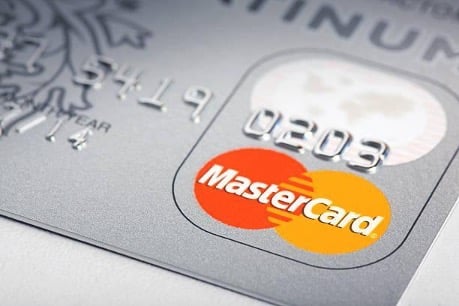Understanding Mastercard Merchant Rules
- October 17, 2022
If you are a merchant who accepts credit cards, it is important to be aware of the regulations set forth by the card brands. Violating these regulations can result in hefty fines, and in some cases, the loss of your ability to accept credit cards all together, including being blacklisted by Mastercard. In this blog post, we will discuss the top 10 ways merchants violate Mastercard regulations.

1. Failing to adhere to the Mastercard Operating Regulations
As a merchant, it’s important that you adhere to the Mastercard Operating Regulations. Failure to do so could result in some serious consequences. For one, you could be fined or even banned from using Mastercard products and services. Additionally, your customers could suffer if their personal information is compromised due to your failure to follow Mastercard’s security procedures.
2. Refusing to accept Mastercard cards
Merchants may violate Mastercard Regulations by refusing to accept Mastercard cards. This can be especially jarring if the merchant has previously accepted Mastercard, but now suddenly refuses. In some cases, the merchant may claim that the card is expired or that there are insufficient funds available. However, these are both violations of Mastercard regulations.
3. Discriminating against cardholders based on race, color, creed, or national origin
Credit card companies have a long history of discriminating against certain groups of people. In the past, cardholders were often denied access to credit based on their race, color, creed, or national origin. This type of discrimination is no longer legal, but it still happens in other ways. For example, some companies may require a higher credit score for members of certain groups, or they may offer different terms and conditions to different groups. This type of discrimination can have a serious impact on someone’s ability to get the credit they need. It can also make it difficult to compare offers from different companies. As a result, it’s important to be aware of the potential for discrimination when you’re applying for a credit card.
4. Imposing surcharges on cardholders
In order to keep up with the rising costs of doing business, many businesses are imposing surcharges on customers who use credit cards. For example, a restaurant may add a 3% surcharge to your bill if you pay with a credit card. This surcharge is in addition to any fees that the credit card company charges the merchant. While businesses are allowed to pass along these costs to customers, they must disclose the surcharge upfront and give customers the option to pay with cash or check instead.
5. Offering cash discounts to encourage use of other forms of payment
If you’re a merchant who accepts Mastercard, you may be tempted to offer cash discounts to encourage your customers to use other forms of payment. However, this practice is actually a violation of Mastercard’s regulations and could result in significant penalties. Not only does this put you at risk of losing your merchant account, but you could also be fined up to $5,000 per occurrence. In addition, you may be required to reimburse Mastercard for any fraudulent charges that occur as a result of your discounting practices. So, while offering cash discounts may seem like a good way to save money, it’s simply not worth the risk.
6. Restricting the use of Mastercard cards to certain transactions or locations
Merchants can violate Mastercard Regulations by restricting the use of Mastercard cards to certain transactions or locations. When this happens, it can result in fees and penalties for the merchant. In some cases, it may even lead to the termination of the merchant’s account. As a result, it’s important for merchants to be aware of these regulations and to take steps to ensure that they are not inadvertently violating them.
7. Displaying signs or notices that discourage the use of Mastercard cards
Mastercard regulations prohibit the use of Mastercard cards for certain types of transactions. Displaying signs or notices that discourage the use of Mastercard cards for these types of transactions helps to protect both cardholders and merchants. For example, a sign that reads “Mastercard cards cannot be used for gambling” would discourage cardholders from using their Mastercard’s to gamble. This, in turn, would help to protect merchants from chargebacks and other issues associated with gambling transactions. Additionally, signs or notices that discourage the use of Mastercard’s for illegal or illicit activities can help to protect both cardholders and merchants from fraud and other risks. By displaying signs or notices that discourage the use of Mastercard cards for prohibited transactions, businesses can help to create a safer and more secure environment for both their customers and themselves.
8. Requiring a minimum purchase amount for acceptance of Mastercard cards
Mastercard regulations prohibit merchants from requiring a minimum purchase amount for acceptance of Mastercard which violates Mastercard regulations. If a merchant does require a minimum purchase amount, the customer may file a complaint with Mastercard. Mastercard will then investigate the complaint and, if found to be valid, the merchant may be fined and/or have their ability to accept Mastercard payments suspended.
9. Failing to post signs at point-of-sale locations specifying which types of Mastercard cards are accepted
Failing to post signs at point-of-sale locations specifying which types of Mastercard cards are accepted may violate Mastercard regulations and result in significant fines. Businesses that accept Mastercard must clearly display the logos of all accepted card types at the point of sale, as well as any relevant expiration dates or other restrictions. Additionally, businesses are required to have signs posted in a conspicuous location that are visible to customers prior to completing a transaction. Failure to comply with these requirements could result in a fine of up to $5,000 per occurrence.
10. Manipulating transaction data in order to qualify for a lower interchange rate.
Merchants who manipulate transaction data in order to qualify for a lower interchange rate are violating the terms of their agreement with their payment processor. This practice can result in significant fines and even the loss of their merchant account. In some cases, it can also lead to criminal charges. Payment processors are required by law to report any instances of fraud or illegal activity, so merchants should be aware that they are risking a lot by trying to manipulate their transaction data. Anyone who is considering doing this should think twice before proceeding.
MATCH
Any of the above Mastercard violations are sure to have Mastercard place you on their Member Alert to Control High-Risk list (MATCH) or Terminated Merchant Files (TMF), an industry blacklist administered by Mastercard.
The consequences of being listed on MATCH include difficulties in establishing and maintaining connections with banks and payment processors, as well as higher costs for those who are willing to do business with a merchant on the list. These issues might put a company out of operation swiftly, especially because getting off the MATCH list may take years.
Conclusion
By understanding and following Mastercard regulations, merchants can avoid costly fines and ensure they don’t get penalized by landing on the MATCH list. If your business is online, you’re more likely to be put on these lists. It’s essential for both your revenue and your business image to get off the MATCH/TMF lists.
Global Legal Law Firm
Save 8-12% in processing expenses by taking your business off of MATCH. You can reduce those fees and get back to what’s important: running your business. Our experienced attorneys have worked with ISOs, processors, commercial collections, credit card brands, etc., and we know how to remove our clients from the Match list successfully.
Recommended Posts
-

What Is a Business Divorce?
Like any other relationship, business partnerships can also come to an...
Read More -

Suing for Breach of Contract: What You Need to Know Before Filing a Lawsuit
Business dealings rely on contracts. When one party doesn’t fulfill their...
Read More -

When to Hire an Attorney for Business Disputes
Disputes are an inevitable part of running a business. They can...
Read More